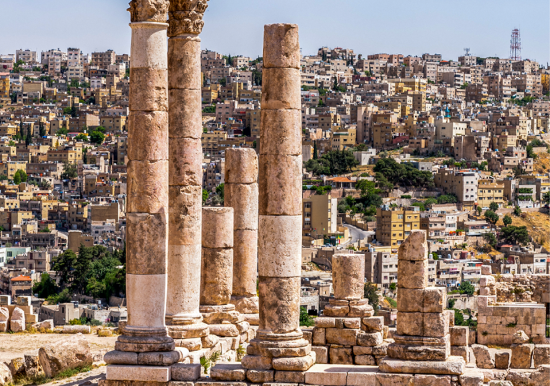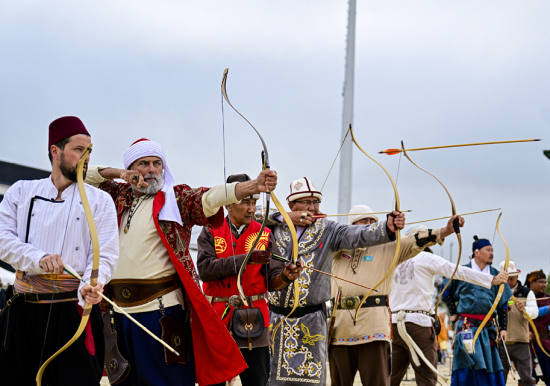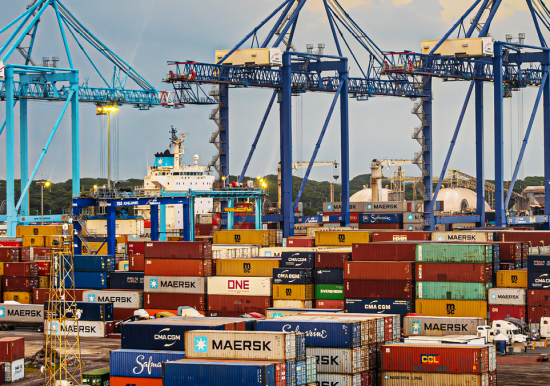
Leadership and Foresight Country Snapshot: Algeria

In the past five years, Algeria has overcome historical, political, and economic challenges to make notable strides. According to the World Bank, in 2024 it transitioned from a lower‑middle income to an upper‑middle income country.1
Since taking office in December 2019, the government led by President Abdelmadjid Tebboune has embarked on long‑term initiatives to increase accountability and efficiency. Algeria’s constitution, amended in 2020, now provides for limits on terms in office, a more independent judiciary, the establishment of a Constitutional Court, and institutes a number of new consultative and independent bodies to provide expertise to the government.2

carbon economy. Tuareg Village, Algeria, 25 May 2011.
At the heart of the government’s 2030 Agenda and five‑year Development Plan is a long‑term vision of developing a more diversified, adaptable, and resilient economy. Currently Africa’s largest producer of natural gas,3 Algeria’s economy is highly dependent on hydrocarbons, which account for around 90% of export revenues.4 The country’s comprehensive energy transition plan prioritises growth and investment beyond hydrocarbons—by tapping into Algeria’s abundant solar resources, and substituting natural gas consumption with blue and green hydrogen.5 To drive this strategy, significant regulatory reforms were introduced, along with new institutions: the Ministry of Energy Transition and Renewable Energies (METRE), established in 2020, and the Algerian Renewable Energy Company (SHEAMS), set up in 2021 as a standalone renewable energy company under METRE.
Algeria is also making long‑term investments in access to water, health, housing, telecommunications, and basic infrastructure.6 Desalination plants and distribution networks are being built at scale to address water security and climate‑induced challenges—all deploying Algerian skills and expertise.7 Several megaprojects are underway in the mining sector for the production of iron, phosphate, and zinc.8 Building on its extensive urban rail transport system across the northern coast, a new 2,400 km trans‑desert railway network is set to connect Algeria’s north with its far south, boosting development across Africa’s largest country by geography.9
Since 2020, the government has implemented innovations to support the small and medium‑sized enterprises (SMEs) and startups vital to diversifying the Algerian economy. Measures such as the Startup Algeria Initiative10 promote entrepreneurship by linking funding, partners, and resources. The country’s national digital transformation strategy extends beyond the private sector: more than 500 digital projects, mostly related to digitalising public services, are slated for completion by 2026.11
To support modernisation, the government has made it a strategic priority since 2022 to shift the primary foreign language taught in Algerian schools from French to English, “the international language, also the language of science and technology”.12 13 While this move marks a significant departure from the country’s historical ties to France, enhanced English skills are expected to help young Algerians pursue careers in emerging technologies, boost the country’s competitiveness in the global market, and create new opportunities for trade and investment. Education Minister Abdelhakim Belabed has lauded the move as “a strategic choice in the country’s new education policy” and a significant success.14
Endnotes
- Metreau, E., Young, K. E. & Eapen, S. G. (1 July 2024). World Bank country classifications by income level for 2024-2025. World Bank. https://blogs.worldbank.org/en/opendata/world-bank-country-classifications-byincome-level-for-2024-2025
- The constitutional revisions also acknowledge the role of the “Hirak” protest movement that toppled former President Bouteflika, who had sought a fifth term in office. (See: https://www.aps.dz/en/algeria/37337-amenedconstitution-signed-algeria-ushers-in-new-democractic-era)
- Wood Mackenzie. (20 March 2025). Algeria upstream summary. https://www.woodmac.com/reports/upstream-oil-and-gas-algeria-upstream-summary-759708/
- Consulate General of Algeria in New York. (2024). Algerian economy in 2023. https://www.algeria-cgny.org/algerianeconomy-in-2023/
- International Trade Administration. (29 June 2021). Algeria’s energy transition plan. https://www.trade.gov/market-intelligence/algerias-energy-transition-plan
- African Development Bank Group. (2023). Dialogue Note 2023-2027 and Country Portfolio Performance Review 2023. https://www.afdb.org/sites/default/files/documents/projects-and-operations/algeria_-_dialogue_note_2023-2027.pdf
- Global Flow Control. (4 March 2024). Algeria to build 7 new desalination plants between 2025 and 2030. https://globalflowcontrol.com/newsroom/algeria-to-build-7-newdesalination-plants-between-2025-and-2030/
- Fourneris, C. (13 August 2022). How Algeria is to turning to its mineral resources to diversify its economy. Africa News. https://www.africanews.com/2022/10/17/how-algeria-is-to-turning-to-its-mineral-resources-to-diversify-its-economy
- NTU-SBF Centre for African Studies (CAS). (26 December 2024). Algeria taps China for major rail expansion. https://www.ntu.edu.sg/cas/news-events/news/details/algeria-taps-china-for-major-rail-expansion
- Startup Algeria. (n.d.) Ministry of Knowledge Economy, Startups, and Micro Enterprises Overview. https://startup-algeria.com/startup-institutions/ministry-startups-algeria
- Algeria Press Service. (25 December 2024). More than 500 projects registered as part of digital transformation strategy. https://www.aps.dz/en/health-science-technology/55686-more-than-500-projects-registered-as-part-of-digital-transformation-strategy
- As announced by President Abdelmadjid Tebboune in June 2022. (See: https://thearabweekly.com/ambivalent-aboutfrance-algeria-expands-english-language-teaching)
- Algeria Press Service. (21 September 2022). Introducing English in primary education, challenge met by Algerian State. https://www.aps.dz/en/
- The Associated Press. (29 September 2023). Algeria expands English-language learning as France’s influence ebbs. https://apnews.com/article/algeria-educationenglish-french-4e02e8bcbb2f94d5646e2996db003145
More Stories


Global Influence & Reputation Country Snapshot: Türkiye

